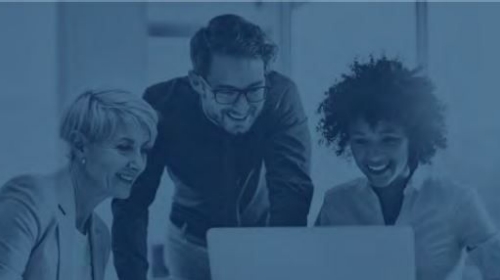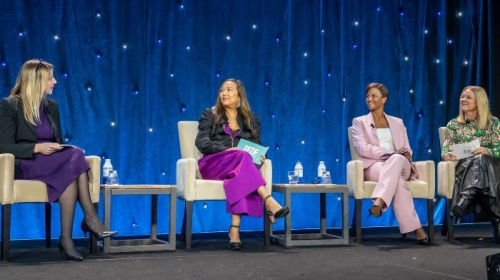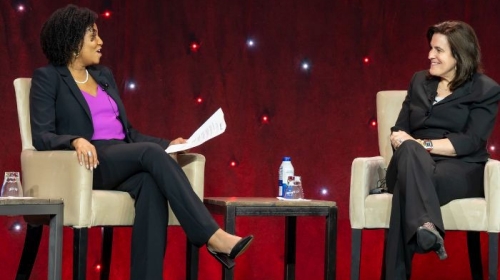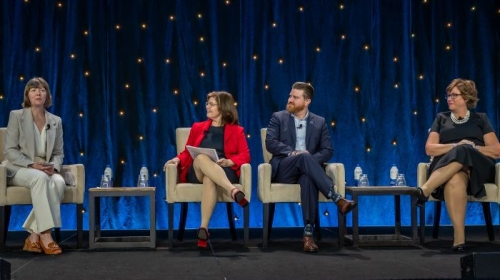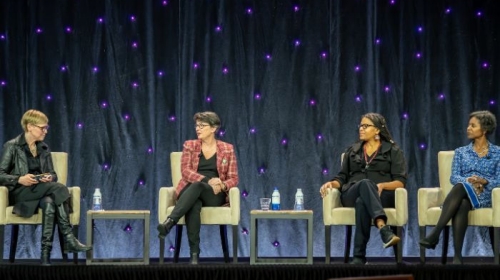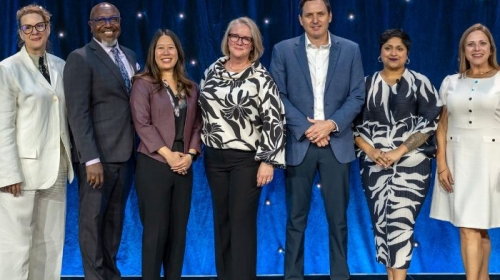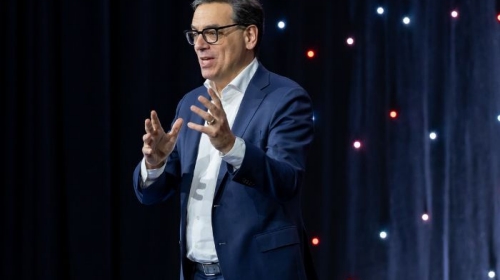In today's complex business environment, many corporate citizenship leaders are working strategically with their employee resource groups (ERGs). Also known as business network groups or affinity groups, these employee-led communities can foster a sense of inclusion and belonging, while sponsoring events and learning opportunities for people all throughout an organization.
Supporting food security during COVID-19

While COVID-19 continues to put pressure on our health care systems across the globe, we are all thankful that children seem to be spared from the worst symptoms of the virus. Many, however, aren’t immune from its subsequent effects—especially the threat of hunger.
According to the National Center for Children in Poverty, nearly half of all children in the United States (43%) live with low-income families at or below the poverty line. As schools, day-care programs, and other public institutions close to slow the spread of the virus, millions of children are in danger of losing their access to free or low-cost meals. Meanwhile, food security for the elderly and those with underlying conditions is becoming increasingly difficult as well.
What can be done? The Federal Government has taken the first step by working to pass H.R. 6201, the FAMILIES FIRST CORONAVIRUS RESPONSE ACT. This legislation—which at the publication of this blog has passed the House and is now in the Senate—would include funding to support food assistance programs, providing $500 million to WIC (The Special Supplemental Nutrition Program for Women Infants and Children), and $400 million to support local food banks.
If passed, this would be a tremendous step toward protecting our most vulnerable, however business and individuals will also need to step up to aid to nonprofit organizations stretched beyond capacity. Here are some starting points for CSR practitioners:
- Reach out to existing partners or local nutrition and hunger nonprofits to find out how your company can help—they are best positioned to prioritize the needs of those they serve.
- Once needs are confirmed, communicate to employees what is needed—in some states, food banks are actually receiving fewer donations than normal as panicked residents hoard supplies—and organize collections and drop offs that still meet the demands of social distancing.
- Offer a focused employee giving program—if possible with a company match—that supports food assistance programs.
- Feeding America, the nation’s largest domestic hunger-relief organization, has created a COVID-19 Response Fund to help food banks across the country as they support communities impacted by the pandemic. This organization partners with a number of Center members including Bank of America, General Mills, Morgan Stanley, Nestle, Nielsen, Target, TJX, and Wells Fargo, and serves a network of 200 member food banks across the country.
- Meals on Wheels is also seeking donations while updating its practices to ensure that its volunteers and the seniors they serve are safe. This organization partners with Center Members such as Ameriprise, Banfield Pet Hospital, and Subaru, and is sometimes the only food option for the populations most vulnerable to COVID-19.
Of course, companies can also consider donating time and resources, as well as funds directly. The Walt Disney Company, for example, is donating food from its Disneyland parks to the Second Harvest Food Bank of Orange County while the parks are closed. Major League Baseball—along with the Major League Baseball Players Association—is donating $1 million to help fight hunger as a result of school closures and quarantines stemming from the COVID-19 pandemic.
COVID-19 will throw unexpected challenges that you—as corporate citizenship professionals—are uniquely prepared to meet. You are adept at identifying and prioritizing the needs of your communities and other stakeholders, and determining where their needs and your companies resources align to deliver the most positive results. And of course—we’re here to help. Please make use of our thousands of knowledge products, the tools and research we’re emailing to you directly, and our digital networks to as you navigate the complexity presented by this pandemic. If you need even more support, don’t hesitate to reach out. Remember, members have access to our Knowledge Request service, which provides individualized responses to address your specific needs. We’ll get through this together.
Related Content
Re-watch this insightful panel discussion with The Allstate Foundation and its nonprofit partners as they reveal their journey to build trusting, authentic donor-grantee collaborations that drive greater impact.
In this fireside chat with Travelers EVP and Chief Marketing, Communications and Customer Experience Officer, Lisa Caputo, you’ll hear how achieving the Travelers Promise means taking care of customers, community, and each other.
Support for military families is vital to sustaining America’s all-volunteer force, a strong national defense, and healthy business environment. But many companies don’t fully consider how they can be a powerful ally to military families.
In an era of critical nursing shortages and untapped veteran talent, Independence Blue Cross Foundation has engineered an innovative solution that serves both community needs and business imperatives.
Sanofi's session looked at questions like: How can companies bring their purpose and core strengths toward ensuring a resilient world? How should we inform and define our points of entry? With whom should we be joining forces to foster the healthy, thriving communities we all need?
In this powerful 60-minute storytelling session, five storytellers shared deeply personal stories of how working across traditional boundaries transformed their understanding of leadership, impact, and human potential.
Re-watch this inspiring keynote, sponsored by BMO, featuring Daniel Pink, #1 New York Times Bestselling Author of The Power of Regret, When, To Sell is Human, Drive, and A Whole New Mind.

